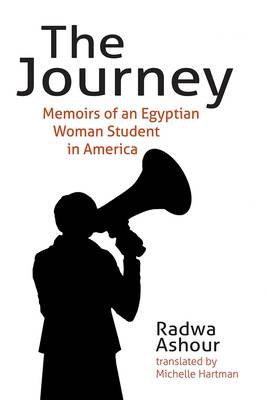
- Retrait gratuit dans votre magasin Club
- 7.000.000 titres dans notre catalogue
- Payer en toute sécurité
- Toujours un magasin près de chez vous
- Retrait gratuit dans votre magasin Club
- 7.000.000 titres dans notre catalogue
- Payer en toute sécurité
- Toujours un magasin près de chez vous
22,45 €
+ 44 points
Description
THIS TRANSLATION IS AN HOMAGE TO A GREAT LITERARY FIGURE AND TO THOSE MOVEMENTS WHICH CARRY ON HER LEGACY IN THEIR WORK Never neutral and deeply engaged in politics, literature, people's struggles, and what she calls the "most urgent causes of our times," a young Radwa Ashour charts her years as a student in the US of the 1970s, where she would become the first PhD student to graduate from the newly founded W.E.B Du Bois department of Afro-American Studies and the English Department of the University of Massachusetts, Amherst in 1975. A political progressive and leftist writer, critic, and activist, her memoir reflects not only on her own journey and struggles but those of the people she met and engaged with in the United States, especially African Americans. The Journey narrates the years which Ashour spent in the US and captures so vividly the spirit and ethos of the time it chronicles--the early 1970s. Anti-colonial movements, a commitment to popular struggles and people's liberation, as well as linking scholarship and work on the ground, are all alive and real in her memoir. First published in Arabic over thirty years ago and written about a period (1973-1975) a decade before, the text is still vibrant and relevant today. Just emerging from the devastation of the Six Day War in 1967, Ashour talks about the pain of what we call the "sixties generation" in the Arab world and intermeshes the pressing questions and issues of the time within a quotidian story, as well as the life of an Egyptian woman within a deeply divided US society at war both with itself and abroad. Radwa Ashour's work--through the unique lens of this incisively observant visitor--reminds us of what the issues and debates in the US of this period were like and how deeply connected they are to struggles today such as Black Lives Mater and Ferguson-Palestine.
Spécifications
Parties prenantes
- Auteur(s) :
- Editeur:
Contenu
- Nombre de pages :
- 224
- Langue:
- Anglais
Caractéristiques
- EAN:
- 9781623719975
- Date de parution :
- 01-07-18
- Format:
- Livre broché
- Format numérique:
- Trade paperback (VS)
- Dimensions :
- 155 mm x 231 mm
- Poids :
- 235 g







